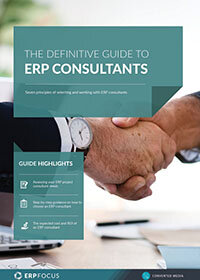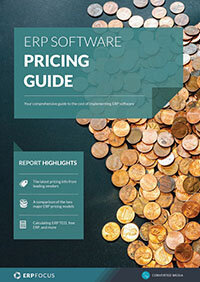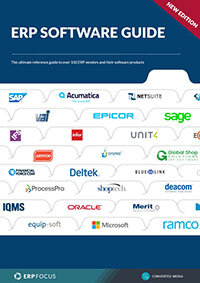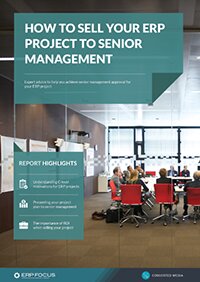Budgeting for an ERP consultant
You’ve decided to move forward with your ERP software project, but you know your in-house team lacks the bandwidth or specialist expertise to ensure success. We highlight the importance of setting aside a consultancy budget where needed. But what should you expect to pay an ERP consultant, and how do you compare the costs and options?
What is an ERP consultant, and what do they do?
An ERP consultant is a specialist who helps organizations implement and manage ERP systems.
They bring knowledge and experience to ensure smooth deployment and optimization.
ERP consultants can have multiple roles and responsibilities, including:
- Assessing business needs: They evaluate the organization’s current processes and systems to identify the gaps that the ERP system must address.
- Project management: ERP consultants plan and manage the entire implementation project, ensuring it stays on track, within budget, and meets the set timelines.
- Customization and configuration: They tailor the system to the business's specific needs by configuring settings and customizing modules.
- Data migration: Ensuring that data from legacy systems is accurately and efficiently transferred to the new ERP system.
- Training and support: Providing training to employees on how to use the ERP system effectively and offering ongoing support to troubleshoot issues.
- Optimization: Post-implementation, they work to optimize the system for better performance and ensure it adapts to evolving business needs.
Estimating how much an ERP consultant costs
The cost of ERP consultancy depends on multiple factors (more about that later). By far the biggest factor is time. Some consultants charge by the hour, others by the day, and most on a fixed project fee. You’ll need a good handle on how long your project will take if you want to estimate the total cost.
Get your free step-by-step ERP implementation guide here to plan out your ERP project
Calculating the time your project will take is one of the trickiest parts of any enterprise-scale software implementation. You’ll need to discuss the full project scope with your shortlisted consultants to get a ballpark figure. It’s important to set an ERP budget that will cover the entire project, including accounting for any hidden costs, from there you can map out your scope and total expenditure.
Consultancy variables
If you already know which ERP system you want, you’ll have a better idea of consultancy fees; a SAP consultant typically charges more than a Sage 500 consultant.
If you need help choosing the right system, you’ll need an independent consultant with expertise in a wide range of ERP solutions. This means paying for more experience and broader knowledge. Consider these key variables to identify which end of the pay scale to forecast:
- Project complexity
- Project duration
- Your location
- Preferred ERP solution
- Solution independence
For businesses that use an ERP consultant to provide unbiased input during the selection stage, independence is highly relevant. If yours isn’t getting a kickback from a particular vendor or software provider, then you may be more likely to get advice that has your best interests at heart. However, without a revenue stream from a software partner, they may need to charge you a higher rate to make up for it.
Enterprise software consultancy hourly rates
ERP consultancy is a broad term. Some focus on the business impact of implementation, while others are more technical. Either way, rates range from $150 to $175 per hour. Tier-one software specialists like SAP and Oracle are at the upper end of that scale.
These rates can also vary by as much as 20% to 30%, depending on where you’re based.
Final thoughts
Businesses have different reasons for engaging a contractor or consultancy firm. If any of these resonate, it might help you decide.
If you are confident your in-house resources can cover each aspect, from selection to implementation to change management support, you might not need external help. However, if any part goes wrong, you could end up among the 9% who need to bring in help when things go off track.
Free white paper

The definitive guide to ERP consultants
Seven principles of selecting and working with ERP consultants

Featured white papers
-

ERP Software Pricing Guide
Get the latest pricing information on over 80 popular ERP systems, and learn how to budget for your ERP project in our free guide
Download -

-

How to sell your ERP project to senior management
Expert advice to help you achieve approval and funding for your ERP project
Download
Related articles
-

Top free ERP and open source systems (plus hidden costs)
When it comes to free ERP software, it pays to remind yourself of the old adage ‘there ain’t no s...
-

How the right ERP can help you launch a successful omnichannel business
Petersen Zhu, CEO of DigitBridge and Vibes Base, shares how to create a scalable omnichannel stra...
-

How much does ERP cost? (Free ERP cost and budget guide)
How much does an ERP system cost in 2025? Everything you need to make an ERP software budget

